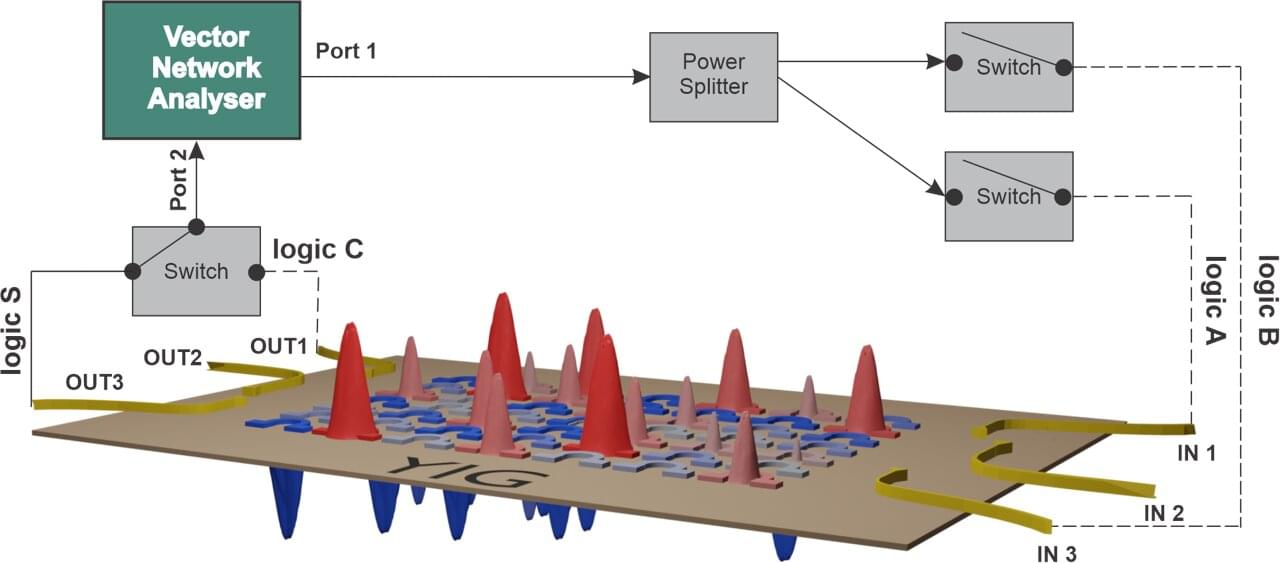An international team of researchers, led by physicists from the University of Vienna, has achieved a breakthrough in data processing by employing an “inverse-design” approach. This method allows algorithms to configure a system based on desired functions, bypassing manual design and complex simulations. The result is a smart “universal” device that uses spin waves (“magnons”) to perform multiple data processing tasks with exceptional energy efficiency.
Published in Nature Electronics, this innovation marks a transformative advance in unconventional computing, with significant potential for next-generation telecommunications, computing, and neuromorphic systems.
Modern electronics face critical challenges, including high energy consumption and increasing design complexity. In this context, magnonics—the use of magnons, or quantized spin waves in magnetic materials —offers a promising alternative. Magnons enable efficient data transport and processing with minimal energy loss.
